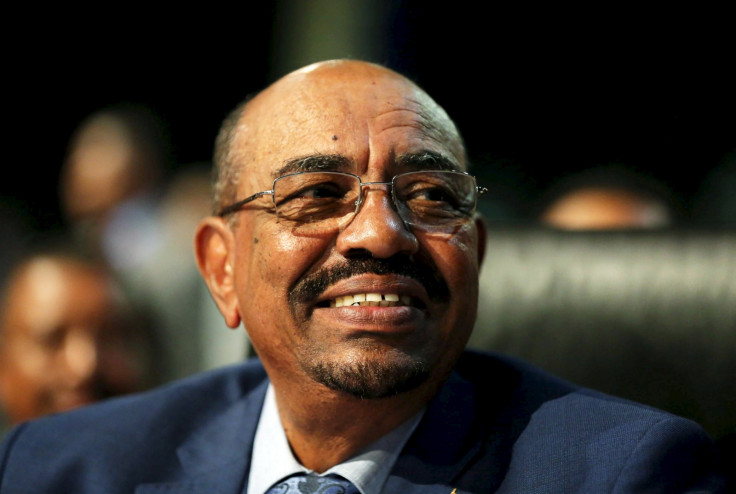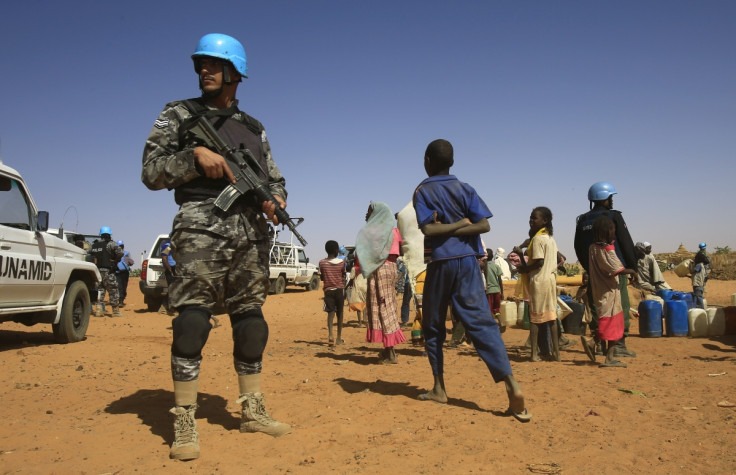UK urged not to move 'from stick to carrot' with Sudan following closer bilateral ties
Parliamentary Group releases report on relations between countries as President Bashir still wanted by ICC.

The UK government is being urged not relax on human rights issues in Sudan following the 'UK-Sudan Strategic Dialogue', started last year. The All-Party Parliamentary Group (APPG) for Sudan and South Sudan – which includes MPs and Lords in Westminster – has made the claim in a report released on 21 February.
The report, "Engagement Beyond the Centre: An inquiry report on the future of UK-Sudan Relations", was published following months of interviews and investigations on the relations between the two coutries.
"The UK Government is moving from the 'stick' to the 'carrot', altering the balance between criticism and cooperation to bring about behavioural change from the government of Sudan and to secure its own interests in the region," APPG said.
Civil disobedience
The report came weeks after Sudan witnessed anti-government strikes against rising prices of commodities, particularly medicines and food, in the country.
Th opposition and activists who organised the strikes called for civil disobedience" in response to the government's decision to increase petrol and diesel prices by 30% in 2016. The move led to the rise in the cost of goods including medicines and public transport.
This, coupled with a sharp fall of the Sudanese pound and US economic sanctions – now lifted – further weakened the country's economy.
Cuts on fuel and gas subsidies in 2013 sparked protests which resulted in the deaths of dozens of people. Activists said at least 200 people were killed, while the government put the death toll at less than 100.
President Omar al-Bashir wanted by ICC

Sudan's President Omar al-Bashir is wanted by the International Criminal Court (ICC) for alleged crimes including genocide committed during the Darfur conflict, where at least 300,000 people have been killed since a conflict erupted in 2003.
Last year, Sudan was accused of using chemical weapons against civilians in Darfur. The country is also accused of marginalising non-Arab populations in the Blue Nile and South Kordofan regions, where conflicts are ongoing.
Read also
President Bashir warns protesters hiding behind 'keyboards and WhatsApp' will not topple him
Third Sudanese Civil War: SPLM-N 'fights for secularism' in South Kordofan and Blue Nile
Sudan reacts as Juba wants SPLM-IO offices closed: 'We have contacts with both sides'
Bashir has always rejected the charges and refuses to stand trial as his country does not recognise the ICC's jurisdiction, which the head of state slammed as "a tool to terrorise countries that the West thinks are disobedient."
"The UK has a proud history of supporting critical engagement with the Government of Sudan," Mark Durkan MP, chair of APPG for Sudan & South Sudan, said.
"However, the announcement of closer bilateral ties without clear progress from the Government of Sudan on significant issues, such as humanitarian access or the repressive restrictions on civil society, puts that reputation at risk."
Sara Pantuliano, managing director of the Overseas Development Institute (ODI) and expert adviser to the inquiry, said: " This report should serve as a timely reminder to the UK Government that short-term migration targets should not determine wider political and economic policy.Tackling displacement upstream and cooperating with regional partners needs to be encouraged, but the UK's steadfast support for the Khartoum Process as it stands is highly concerning."
Response to the report
The Sudanese embassy in London has not responded to a request for a comment.
A spokesperson for the FCO told IBTimes UK: "The UK Government engages with the Sudanese government on a wide range of issues, including migration, and this enables us to raise human rights concerns directly.
"As a source, host and transit country for migration, it is important that we engage both with civil society and the Sudanese government to tackle the conflict and human rights situation, supporting regional co-operation and building technical capacity to stop people trafficking and smuggling," the spokesperson
© Copyright IBTimes 2025. All rights reserved.






















